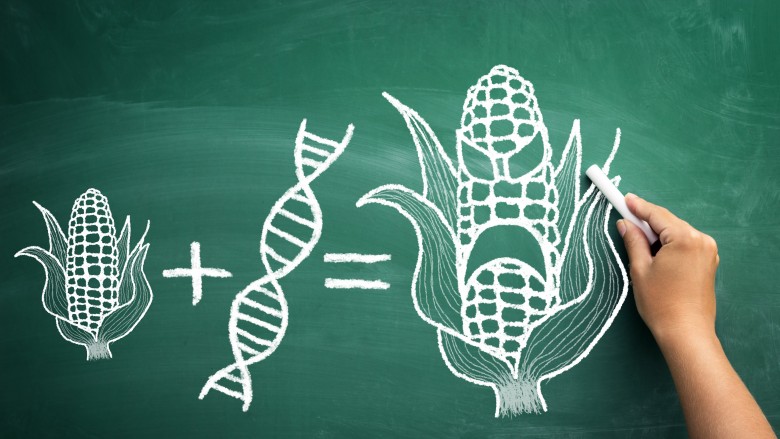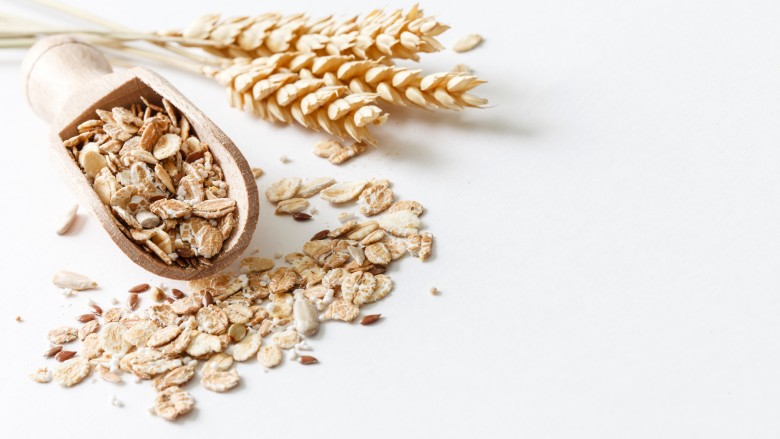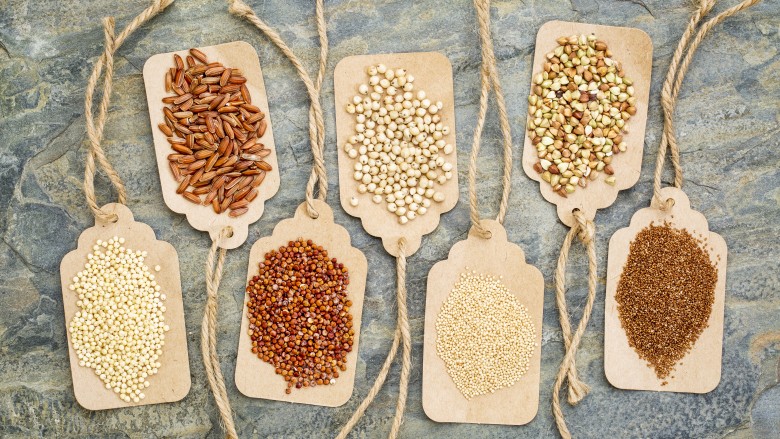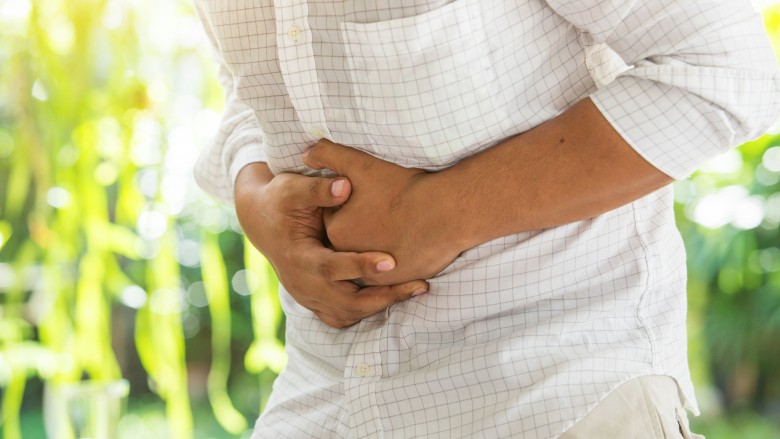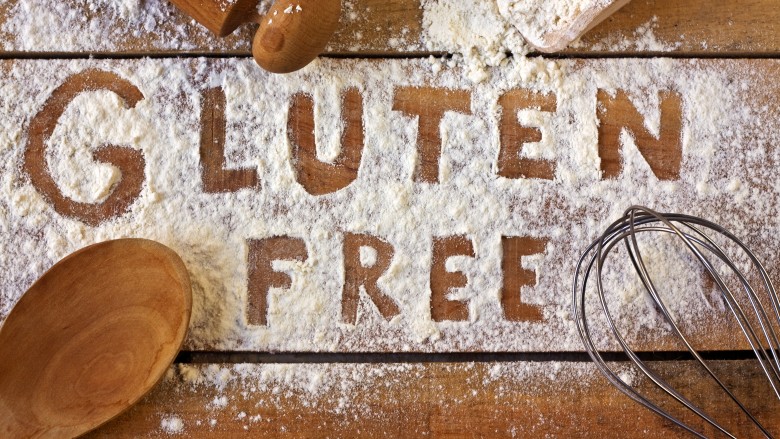What Everyone Gets Wrong About Whole Grains
Everybody wants to eat healthy foods and make good nutritional decisions for a healthy body. Because of that, there are a lot of fad diets floating around, and there are a lot of misconceptions about certain types of foods, including whole grains. Many people mistakenly think that whole grains are bad for you, or they put too much stock in the grain's role in digestion, its ability to regulate blood sugar, and more. It's important to be informed about what types of foods to put into your body, so let's look at some common misconceptions about whole grains that everybody gets wrong. We did some reading and emailed several experts to see what they thought.
All whole grains are GMOs
A genetically modified organism is an organism that was, unsurprisingly, modified. Without getting too much into the science of GMOs, we can all agree on two things. First, there are wildly conflicting opinions on GMOs; second, we could always use more independently funded scientific research. GMO labeling in the U.S. is pretty confusing, so it isn't always clear which products contain GMOs. Registered dietitian Stephanie Dunne pointed out that many studies have shown that the nutritional values of genetically modified foods are the same as the non-modified versions. She also noted that some plants are naturally resistant to pesticides. Others say GM crops reduce pesticide use. It's a bit muddled according to NPR, so what do you do when any wheat and other whole grains could be genetically modified?
Well, the USDA says that "no GM wheat is commercially grown in the United States." If you don't believe that, there are plenty of organic food companies that have their own claims about not working with GMOs. And, since wheat is not the only whole grain, there are plenty of whole grain options for which no GM varieties have been created. You're safe with amaranth, barley, buckwheat, and more. Livestrong has a full list and some great information about whole grains. GMOs are no reason to avoid whole grains: there are plenty of non-GM options.
All grains are whole grains
Not all grains are whole grains. Jenny, a certified nutrition and health coach from Good for You Gluten Free, explains: "Whole grains have the bran, germ, and endosperm intact. When the bran and germ are removed, the grain is stripped of its nutritional value and all you have is nutritionally devoid starchy white, refined grain." Whole grains are intact, and it takes your body longer to digest them. That's good, because you'll feel fuller longer and you can avoid blood sugar spikes. All grains do start off as whole grains (obviously), but if the germ or bran are removed, protein and other key nutrients are reduced. Jamie Logie, a personal trainer and nutritionist, says it's important to make sure you're eating whole grains instead of grains in the form of bread or pasta. He says when a grain is processed, it becomes a "fast-acting carbohydrate in the body." And we all know that those fast-acting carbs can lead to blood sugar problems and weight gain if we consume lots of them.
All grains make you gain weight
There's a reason so many people are turning to mostly protein diets like the keto diet: there's a lot of confusion about whether grains make you fatter. Kim Melton, registered dietitian, says there's no need to cut whole grains and carbs out of your diet altogether. She says that certain whole grains — like spelt, farro, and sorghum — are loaded fiber and protein and are very good for you. We already know that whole grains can help you stay fuller for longer, so that makes sense. But moderation is key, as in all things. Rebecca Lewis, the in-house dietitian at the popular meal delivery company Hello Fresh, says weight loss requires a lot of diet changes: "To safely lose weight (without it coming right back on), you need to reduce your caloric intake." It's much harder to overdo it with whole grains because they're so filling. It's the refined carbs you need to be careful with. For most of us, the amount of mac and cheese we can consume is directly proportionate to the amount of mac and cheese available.
All whole grains contain gluten
Ah, gluten. Many people assume that all grains, even whole grains, contain gluten. While some of them do, there are plenty that don't. Quinoa, the relatively new kid on the gluten-free block, is technically a seed but considered a whole grain. Jamie Logie from Regained Wellness tells us, "It's an ideal carbohydrate choice and is one of the few vegetarian sources that contains all amino acids, making it a complete protein." If you want to avoid gluten, watch out for wheat, barley, and rye. Rice, corn, amaranth, buckwheat, sorghum, and teff are gluten-free, as are oats. However, oats are often processed in facilities where they're contaminated with gluten, and the other grains are vulnerable to the same problem. The gluten can get all up in the non-gluten items, defeating the purpose of picking gluten-free things.
Nobody really has a gluten allergy
The truth is a little bit the opposite. Celiac disease is a full-on, honest-to-goodness allergy to gluten. Registered dietitian Kim Melton tells us that while people with celiac have to avoid gluten completely, those people only make up about 1 percent of the population. However, registered dietitian Stephanie Dunne says research shows that none of us have the right enzymes to properly digest gluten. So in one way of thinking, we're all a tiny bit allergic to gluten. As a result, gluten can help make your guts all leaky. Ew. So should those of us without celiac still avoid gluten altogether?
Everyone would benefit from a gluten-free diet
Social media and advertisements tell us it's healthy to be gluten-free. And if none of us have the proper enzymes to fully break gluten down, maybe we'd all benefit from a gluten-free diet. But maybe not. According to registered dietitian Ashvini Mashru, "going on a gluten-free diet may be detrimental to your health and lead to nutrient deficiencies." She also says most gluten-free products on the market are higher in fat and calories, lower in fiber, and often high in sodium. In a nutshell, there's no scientific reason to eliminate gluten if you don't have celiac. That doesn't mean you should load up on gluten just to tease your celiac friends. Healthy gluten whole grains, with plenty of fruits, veggies, and lean proteins are your best bet.
You can prepare whole grains any old way
Jenny at Good For You Gluten Free says there's a right way to prepare whole grains. It starts with soaking them for 8-24 hours. The soaking makes them easier to digest and helps your body absorb their nutrients. Prior to the early 1900s, everyone prepared their grains properly. But since quick oats were invented, things have gone a bit downhill. If you don't prepare your whole grains properly, you could be in a mess of tummy trouble. Don't go chowing down on unprepared whole grains. Raw quinoa is gross, anyway.
Whole grain foods are flavorless and gross
Why do we have cheat days? So we can eat anything we want, right? And, most of the time, the things we want aren't considered all that healthy. No, we reach for ice cream, cheese, chips, and other yummy stuff. I talked to Leann from BuckWhat, who manufactures healthy snacks and granola from buckwheat (which is naturally gluten-free, if you have sensitivities). The Whole Grain Council has a list of recipes, and the internet is simply loaded with other great dishes you can make with whole grains. If you know more about what you're eating, you can make the best decisions for your diet. Now, go forth and cook!

